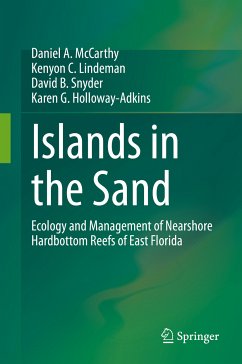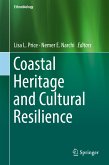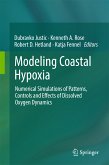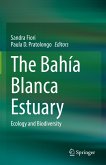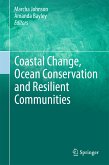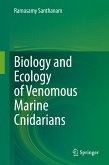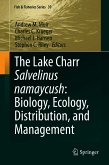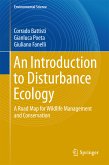An unprecedented collection of research information and often stunning color photographs are assembled including over 1250 technical citations and 127 figures. These shallow reefs are part of a mosaic of coastal shelf habitats including estuarine seagrasses and mangroves, and offshore coral reefs.
These hardbottom habitats are federally designated as Essential Fish Habitats - Habitats of Particular Concern and are important feeding areas for federally-protected sea turtles. Organismal and assemblage responses to natural and man-made disturbances, including climate change, are examined in the context of new research and management opportunities for east Florida's islands in the sand.
Dieser Download kann aus rechtlichen Gründen nur mit Rechnungsadresse in A, B, BG, CY, CZ, D, DK, EW, E, FIN, F, GR, HR, H, IRL, I, LT, L, LR, M, NL, PL, P, R, S, SLO, SK ausgeliefert werden.

